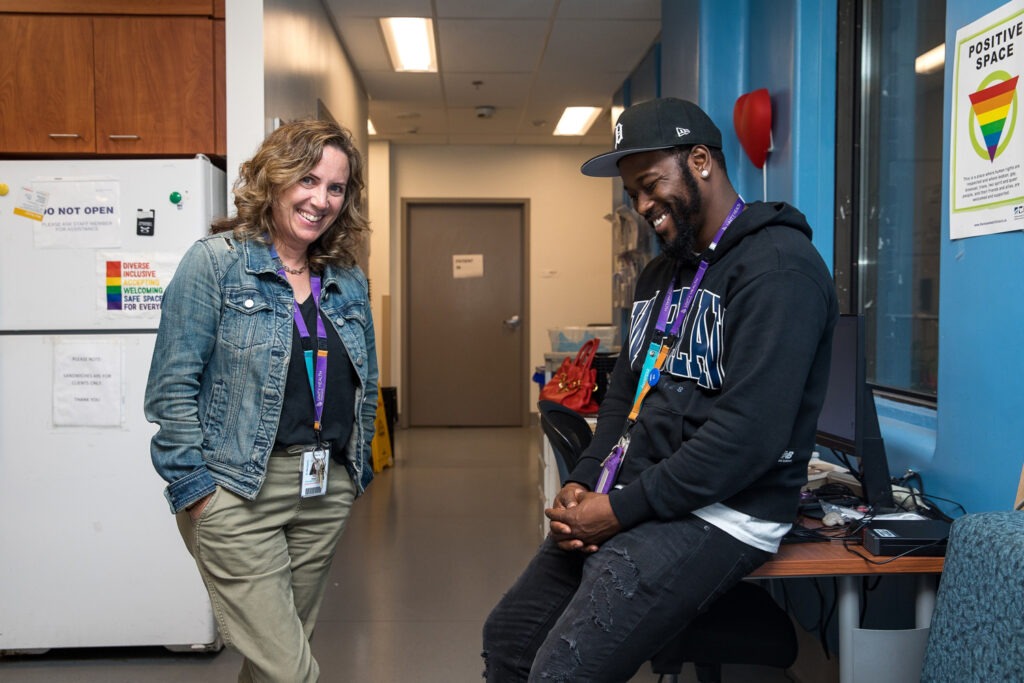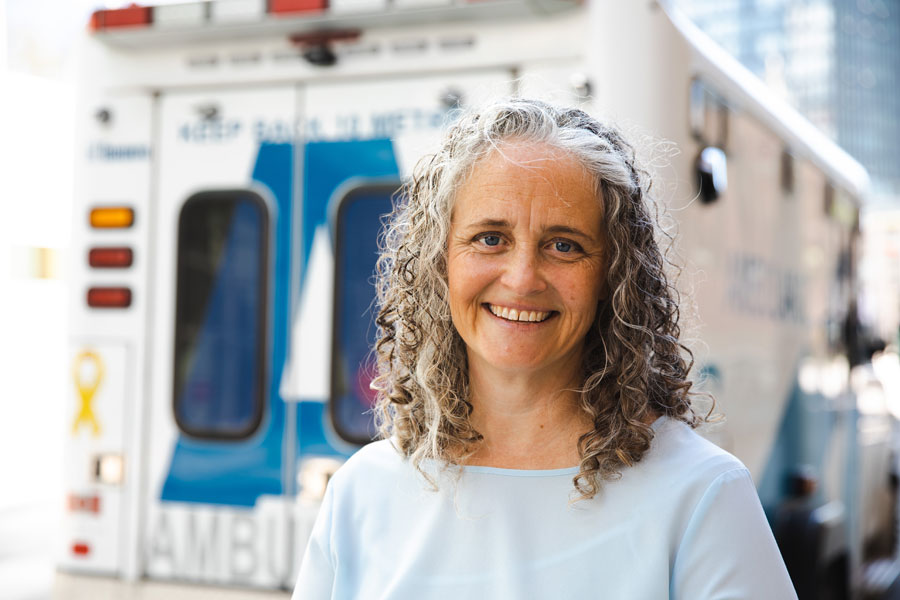
Breaking the cycle: How an innovative program supports victims of violence
Annual Report 2023-24
Early in her career, emergency physician and scientist Dr. Carolyn Snider treated a patient who had been paralyzed by a gunshot wound. She remembers how critical his condition was – the way his lungs collapsed and how she had to keep inserting chest tubes to help him breath.
She’d seen the patient before. He’d been in for other injuries resulting from violence in the past. During one of those previous visits she’d spoken to him about his life and quickly discovered how engaging he was.
The patients’ story is unfortunately not unique. About 20 per cent of patients who visit the emergency department with violent injuries will be back again within a year.
“We do preventative medicine for so many other illnesses and injuries,” says Snider. “I’ve questioned if there was something more I should have done the first time I met him.”
Snider went on to complete a master’s in public health and committed herself to answering the question: How do we break the cycle of violence?
Snider, along with colleagues Deshawn Hibbert and Sarah Rogers, now runs the Toronto Hospital-based Reducing Injury from Violence Intervention and Evaluation (THRIVE) program at St. Michael’s Hospital. THRIVE helps 14 to 29-year-olds who have been victims of violence get access to trauma care, counselling, mental health care and coaches who are trained to support them as they recover and move from the hospital back into their communities.

THRIVE received most of it’s funding from generous donors, as well as the City of Toronto in 2022 and from the St. Michael’s Hospital Foundation in 2023 through Angels Den, Canada’s largest medical research pitch competition. Built-in research components are helping the program test which strategies are working the best for preventing further injury and hospital stays.
As a Level 1 trauma centre, St. Michael’s sees many patients every year who have been victims of violence. Physicians and staff in the hospital have long advocated for gun control, education and intervention for patients who have experienced violence.
Rogers, an Outreach Coach Coordinator, says the interdisciplinary and collaborative nature of the hospital makes it an excellent place to run a program like THRIVE.
“It’s the trauma team, social work, nurses, doctors, spiritual care, outreach and community support workers,” says Rogers. “It’s been the key to success.”
As an outreach coach in the program, Hibbert works with clients to identify goals, whether it’s something immediate like finding stable housing or longer-term like going back to school or engaging in employment programs. Clients are encouraged to be independent and use their strengths as they recover.
The program has helped clients to find housing, reconnect with family and rebuild meaningful relationships. And while it’s still in its early stages, it seems to be working to stop patients from returning with further injuries.
The THRIVE team believes that meaningful care should be equitable, not only in terms of access, but in terms of longevity.
“We’re not actually implementing equity in care when the standard of care is to suture somebody up and send them home without any tools to prevent the next injury,” says Snider.
Sign up for the Unity Health Toronto newsletter, a monthly update on the latest news, stories, patient voices and research emailed directly to subscribers. If you haven’t subscribed yet, you can do that by clicking here.
